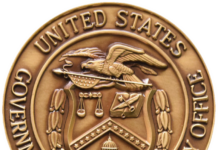 A group of 33 highly selective liberal arts colleges filed an amici curiae brief with the United States Supreme Court urging that the tribunal uphold its 1996 ruling in the Grutter case that allowed “narrowly-tailored” considerations of race in the college admission process.
A group of 33 highly selective liberal arts colleges filed an amici curiae brief with the United States Supreme Court urging that the tribunal uphold its 1996 ruling in the Grutter case that allowed “narrowly-tailored” considerations of race in the college admission process.
The college told the Court that “each year, Amici decide which set of applicants, considered individually and collectively, will take fullest advantage of what the college has to offer, contribute most to the educational process, and use what they have learned for the benefit of society. Studies consistently show that diversity — including racial diversity — meaningfully improves learning experiences, complex thinking, and non-cognitive abilities. Diversity also generates pedagogical innovations and decreases prejudice. These benefits are especially pronounced at liberal arts colleges and small universities, where smaller class sizes lead to greater engagement among diverse students.”
The liberal arts institutions told the Court that if they were no longer able to consider race in their admissions decisions, there would be a dramatic drop in the diversity of their student bodies. The schools estimate that Black enrollments would likely decline between 50 percent and 70 percent. The percentage of Black student applicants who were offered admission would be about half the rate for White applicants. Most strikingly, the percentage of Black students matriculating at these liberal arts institutions as a whole would drop from 7 percent to 2 percent. The JBHE Annual Survey of Black first-year students in the Class of 2025 showed that 11 colleges that were part of the amici had an entering class that was at least 9 percent Black. At Amherst College, Haverford College, Swarthmore College, Pomona College, and Barnard College, Blacks were at least 13 percent of the entering classes.
The colleges conclude in their brief that “the consideration of race in admissions as part of a holistic, individualized assessment produces multiple tangible benefits, which would otherwise be unattainable.” Strictly enforced, a “do not consider race” policy would “presumably take Black enrollments back to early 1960s levels before colleges and universities began to make serious efforts to recruit minority students.
The liberal arts colleges that signed on to the brief are Amherst, Barnard, Bates, Bowdoin, Bryn Mawr, Carleton, Colby, Connecticut, Davidson, Franklin & Marshall, Hamilton, Hampshire, Haverford, Macalester, Middlebury, Mount Holyoke, Oberlin, Pomona, Reed, Sarah Lawrence, Smith, St. Olaf, Swarthmore, Trinity, Union, Vassar, Wellesley, and Williams. They were joined by Bucknell University, Clark University, Tufts University, Washington and Lee University, and Wesleyan University.









